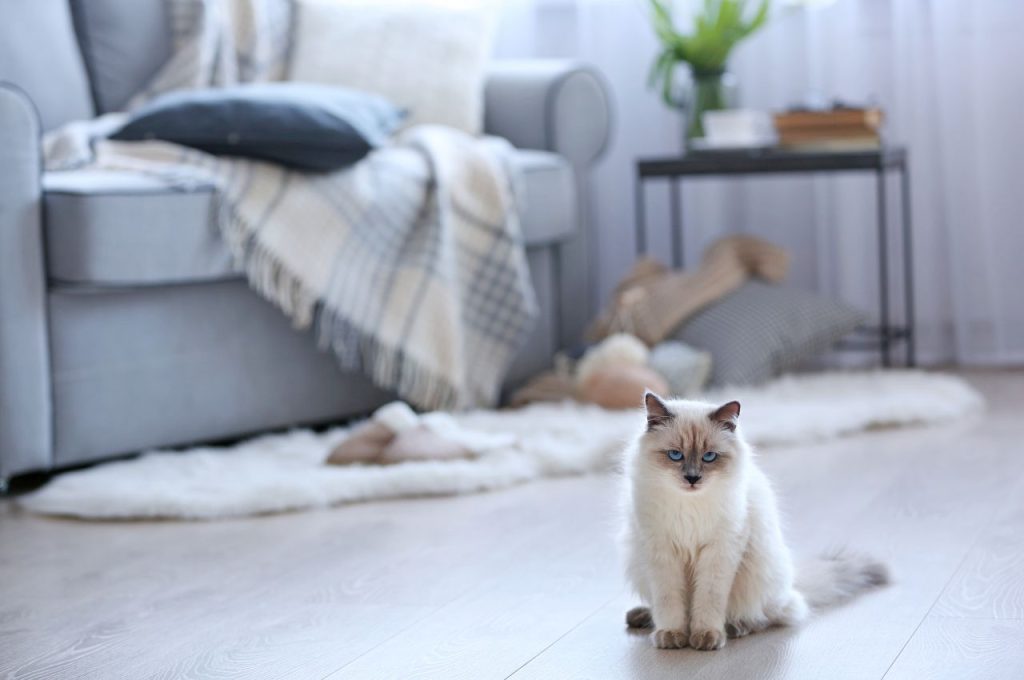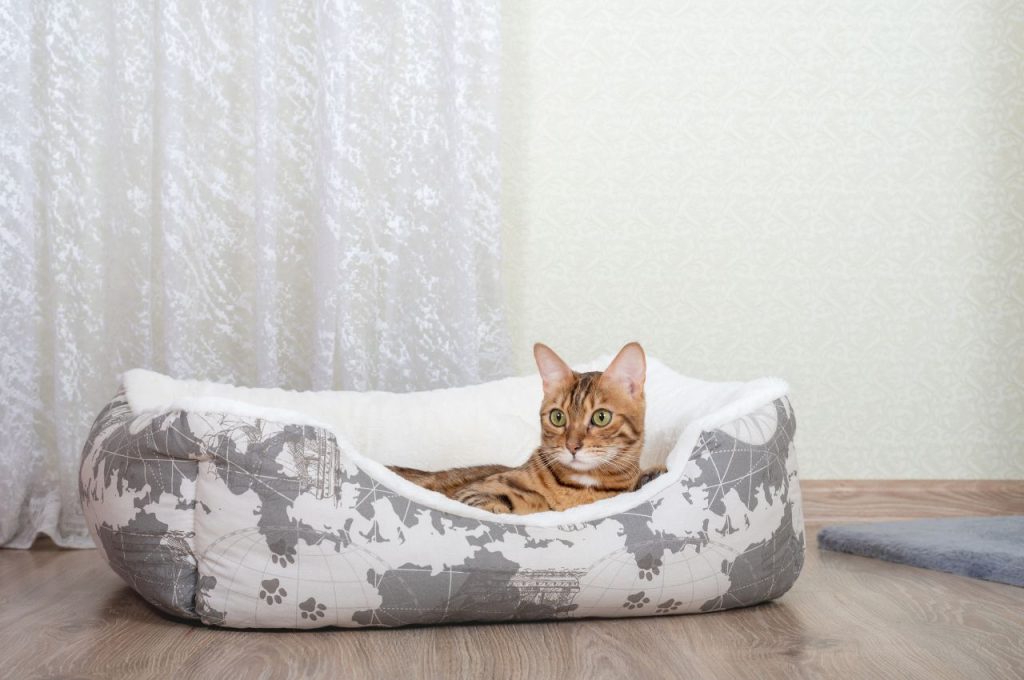To make your cat live longer, provide a balanced diet and regular veterinary check-ups while ensuring they have plenty of exercise and mental stimulation. Providing your cat with a long and healthy life is a priority for every pet owner.
Cats, like any other living creature, require specific care and attention to ensure their well-being and longevity. Making small changes in their daily routine can lead to significant improvements in their overall health. This article explores various ways to maximize your cat’s lifespan and enhance their quality of life.
From ensuring they have a well-balanced diet to scheduling regular visits to the veterinarian, these steps will help prevent and detect any potential health concerns early on. Additionally, engaging your feline friend in regular exercise and providing mental stimulation are crucial factors in promoting their overall well-being. By following these guidelines, you can help extend your cat’s lifespan and ensure a long and happy life for your feline companion.
Understanding Cat Lifespan
Your feline friend is more than just a pet; they are a cherished family member. As a responsible pet owner, you want your beloved cat to live a long, healthy, and fulfilling life. To ensure just that, it is crucial to understand the factors that affect their longevity. By gaining insights into the average lifespan of different cat breeds and identifying the factors that impact their lifespan, you can take proactive measures to help your cat thrive. Let’s delve into the world of cat lifespan and explore these factors so you can provide the best care possible for your furry companion.

Factors Affecting Cat Longevity
While genetics play a significant role in determining a cat’s lifespan, several other factors can either contribute to or hinder their overall health and longevity. By being aware of these factors, you can make informed decisions to increase the chances of your cat living a longer, happier life.
Diet and Nutrition
A well-balanced diet is the foundation of your cat’s overall health and lifespan. Providing a nutritionally complete meal that is appropriate for your cat’s life stage and specific dietary needs is essential. Consult with your veterinarian to determine the ideal diet for your feline companion.
Exercise and Mental Stimulation
Regular exercise and mental stimulation are crucial for maintaining a healthy weight, preventing obesity-related diseases, and promoting overall well-being. Engage your cat in interactive play sessions and provide them with toys that encourage physical activity to keep them mentally and physically stimulated.
Veterinary Care
Regular veterinary check-ups and preventative care play a vital role in prolonging your cat’s lifespan. Vaccinations, parasite control, dental care, and early detection of any health issues through routine check-ups can significantly impact their overall well-being.
Environment and Safety
A safe and stimulating environment is essential for your cat’s longevity. Ensure that they have a secure and fertilized living space, away from potential hazards. Indoor cats generally have a longer lifespan than outdoor cats due to reduced risks of diseases, accidents, and exposure to predators.
Average Lifespan of Different Cat Breeds
The lifespan of a cat can vary significantly depending on its breed. While genetics and individual health factors still play a role, understanding the average lifespan of different cat breeds can give you a general idea of what to expect.
Here is a table showcasing the average lifespan of some popular cat breeds:
| Cat Breed | Average Lifespan |
| Maine Coon | 12-15 years |
| Siamese | 10-12 years |
| Persian | 12-16 years |
| Bengal | 10-15 years |
Please note that these are average lifespans, and individual cats may live shorter or longer lives depending on various factors.
By understanding the factors that affect your cat’s lifespan and being aware of the average lifespan of different cat breeds, you are better equipped to provide the care and attention necessary for your feline companion’s longevity. Remember, every cat is unique, so give them the love, care, and healthy lifestyle they deserve.
Essential Care for A Longer Cat Life
Taking care of your beloved feline friend goes beyond providing food and a cozy spot to nap. As a responsible pet owner, you play a vital role in ensuring that your cat lives a long and healthy life. By focusing on essential care practices such as proper nutrition and diet, regular veterinary check-ups, the importance of exercise and mental stimulation, as well as grooming and dental hygiene, you can make a significant difference in your cat’s overall well-being and lifespan.

Proper Nutrition and Diet
The foundation of a long and healthy life for your cat lies in a well-balanced and nutritious diet. Providing the right nutrients in the correct ratio will support their immune system, maintain a healthy weight, and prevent the onset of various health conditions.
- Ensure you choose high-quality cat food that is specifically formulated for your cat’s age, breed, and health condition.
- Include a variety of protein sources such as meat, fish, or poultry to meet their dietary requirements.
- Avoid giving your cat excessive treats and human food, as this can lead to weight gain and nutrient imbalances.
- Remember that fresh water should always be available to keep your cat hydrated.
Regular Veterinary Check-ups
One of the most essential aspects of caring for your cat’s health is regular veterinary check-ups. Like humans, cats need routine medical care to detect any underlying health issues early on and prevent them from escalating into more serious conditions.
- Schedule annual wellness visits with your veterinarian for a thorough examination, vaccinations, and preventive treatments.
- Monitor your cat’s behavior, appetite, and litter box habits, and consult your veterinarian if you notice any changes.
- Follow the recommended vaccination schedule to protect your cat from common diseases.
- Discuss parasite prevention (fleas, ticks, and worms) with your veterinarian to keep your cat healthy and comfortable.
Importance of Exercise and Mental Stimulation
Exercise and mental stimulation are crucial for a cat’s physical and mental well-being. Regular physical activity and engaging playtime will help your cat maintain a healthy weight, improve muscle tone, and prevent boredom-related behavior problems.
- Provide an enriching indoor environment with toys, scratching posts, and climbing structures to stimulate your cat’s instincts.
- Dedicate time each day for interactive play sessions with toys that encourage your cat to chase, pounce, and jump.
- Consider introducing puzzle toys or treat-dispensing toys to mentally challenge your cat and keep them entertained.
- Offer a variety of toys to prevent boredom and rotate them regularly to maintain your cat’s interest.
Grooming and Dental Hygiene
Regular grooming and dental care are essential for maintaining your cat’s overall health and well-being. Proper grooming can help prevent matting, skin issues, and excessive shedding, while dental hygiene is crucial for preventing dental disease.
- Brush your cat’s coat regularly to remove loose hair and prevent hairballs.
- Ensure your cat’s nails are trimmed to prevent overgrowth and discomfort.
- Introduce teeth brushing as early as possible to maintain good dental hygiene.
- Offer dental treats or toys designed to promote dental health and prevent tartar buildup.
By following these essential care practices, you can provide your cat with the best possible chance at a long and healthy life. Remember, your cat’s well-being is in your hands, and the love and care you provide will make all the difference.
Creating A Healthy Environment
Creating a healthy environment is crucial for ensuring the well-being and longevity of your beloved feline friend. As a cat owner, you are responsible for providing a safe and comfortable home, reducing stress and anxiety, maintaining a clean and chemical-free environment, and preventing accidents and hazards. By taking these proactive measures, you can greatly increase the quality of life for your cat and help them live a longer, happier life.
Providing A Safe and Comfortable Home
When it comes to creating a safe and comfortable home for your cat, there are a few key considerations to keep in mind. First and foremost, ensure that your cat has a designated space where they can retreat when they need some peace. This could be a cozy cat bed, a designated corner of a room, or even a private cat condo. Providing them with a haven allows them to feel secure and reduces stress.
Additionally, it is important to make sure your home is free from any potential dangers or hazards. This includes securing loose cords, keeping toxic plants out of reach, and safely storing household chemicals and medications. Regularly inspect your home for any potential hazards and take the necessary steps to eliminate or minimize them.
Reducing Stress and Anxiety
Cats are sensitive creatures and can easily become stressed or anxious in certain situations. To create a stress-free environment, it is important to identify and address any potential triggers. This might include loud noises, unfamiliar visitors, or changes in routine. By minimizing these stressors, you can help your cat feel more at ease and reduce their risk of developing stress-related illnesses.
Consider creating a calm and peaceful space for your cat, free from excessive noise and disruptions. Provide plenty of hiding spots, such as cat trees or shelves, where your cat can retreat to when they need some alone time. Additionally, interactive toys and puzzle feeders can help stimulate your cat’s mind and provide them with mental enrichment, reducing boredom and anxiety.
Maintaining A Clean and Chemical-free Environment
Keeping your cat’s living space clean is essential for their health and well-being. Regularly clean and sanitize litter boxes to prevent the buildup of bacteria and odors. Choose natural and non-toxic cleaning products to avoid exposing your cat to harmful chemicals. Cats are notorious for their grooming habits, so it’s important to keep surfaces free from potentially toxic substances.
Furthermore, ensure that your cat’s food and water bowls are cleaned regularly. Bacteria can quickly multiply in dirty bowls and lead to digestive issues or infections. Fresh water should always be available for your cat to stay hydrated and prevent urinary tract problems.
Preventing Accidents and Hazards
No matter how careful you are, accidents can still happen. However, taking preventative measures can significantly reduce the risk of accidents and protect your cat from harm. Keep all medications, human food, and small objects out of your cat’s reach to prevent ingestion. Ensure all windows and balconies have secure screens or barriers to prevent falls. Additionally, check your home for any potential loose or frayed wires that could pose an electrical hazard.

Regular veterinary check-ups are also crucial for identifying and addressing any potential health issues before they become serious. Keeping up with vaccinations, parasite prevention, and dental care can go a long way in ensuring your cat’s overall health and longevity.
By providing a safe and comfortable home, reducing stress and anxiety, maintaining a clean and chemical-free environment, and preventing accidents and hazards, you can greatly contribute to your cat’s well-being and extend their lifespan. Remember, a healthy environment is essential for your cat’s happiness and longevity, so always prioritize their health and safety.
Conclusion
To ensure a long and healthy life for your beloved feline companion, it is essential to provide them with a balanced diet, regular exercise, and routine veterinary check-ups. Additionally, keeping them mentally stimulated and providing a stress-free environment can greatly contribute to their longevity.
By incorporating these practices into your cat’s everyday life, you can help them live their best life for years to come. Remember, the key is to prioritize their physical and emotional well-being, ensuring they receive the care and attention they deserve.
